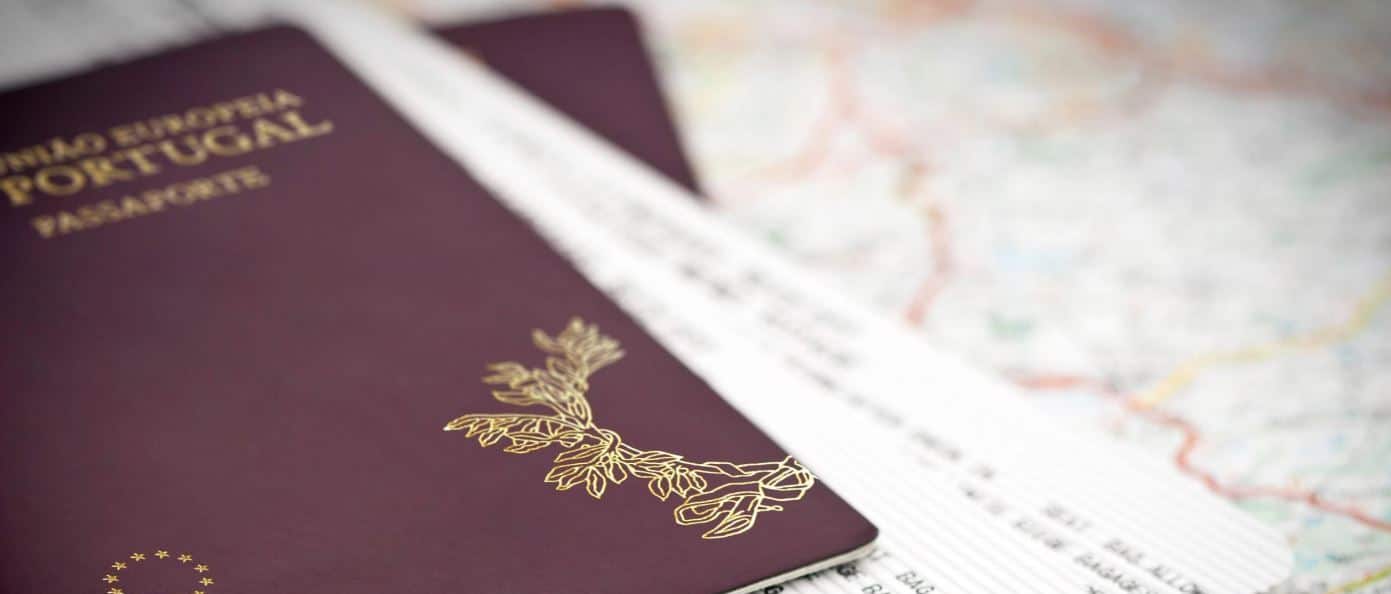EU Passport for UK Citizens
With Brexit now in full effect, UK citizens no longer have access to European rights, which means reduced mobility and constrained economic freedom. If you are looking to regain your rights, there is a solution: you can get an EU passport after Brexit. Thanks to European citizenship by investment and residency by investment programs, getting EU citizenship after Brexit is possible. We tell you all there is to know about it in this guide.
Benefits of EU Passport after Brexit
Getting an EU passport for UK citizens
Since 1 January 2021, UK citizens no longer have access to European rights, which makes them eligible to apply for EU residency and citizenship by investment programs.
Designed to boost economic development, the residency and citizenship by investment programs are economic schemes designed to help non-EU investors and their families acquire EU citizenship in exchange for an economic investment. Countries offering some of the most attractive EU immigration schemes are Malta, Spain and Portugal.
Requirements to get an EU passport for UK citizens
Requirements to get an EU passport for UK citizens vary from country to country, however, here are some of the common features you will find:
- Be either non-EU, non-Swiss, or non-EEA
- Make a minimum investment in exchange for residency or citizenship
- Have a clean criminal record
- Comply with the country’s stay requirement
Citizenship by investment programs
Malta
Famous for its beauty and excellent healthcare, the Mediterranean island nation Malta has launched a new Citizenship by Investment Program, now called Maltese Citizenship by Naturalisation for Exceptional Services by Direct Investment (CES). It is one of the fastest ways to maintain ties to Europe as you can get a Malta passport in just a year.
Acquiring Maltese citizenship holds multiple benefits such as the ability to partially or fully travel visa-free to over 190 countries worldwide, acquire recognized dual citizenship, and tap into tax efficiency opportunities based upon residency.
CES investment requirements:
- Make a minimum contribution of €600,000 to the national development fund and prove 36 months of residency, or make a contribution of €750,000 and show evidence of 12 months residency.
- In addition to the contribution, invest €700,000 into residential real estate, or enter into a rental agreement at a minimum value of €16,000 per annum which must be maintained for five years.
- Donate €10,000 to a registered philanthropic, cultural, sport, scientific, animal welfare, or artistic non-governmental approved organization or society.
Golden Visa programs
Spain
With an excellent quality of life and a fantastic cuisine, Spain has been for many years one of Europe’s best countries to live in. Thanks to its Spain Golden Visa, UK citizens and their families can become Spanish residents and benefit from EU rights in exchange for a qualifying investment.
The Spain Golden Visa allows you to travel without restriction in the EU, live, work and study in Spain and the best part is: once you’ve been a Spanish resident for 10 years, you can apply for a Spanish passport which will grant you unlimited access to the EU.
Spain Golden Visa investment requirements:
Spain Golden Visa investment options are multiple and applicants get to choose which one suits their needs best:
- Purchase real estate with a minimum value of €500,000.
- Issue a bank deposit of at least €1,000,000.
- Invest €1,000,000 in shares of Spanish businesses.
- Contribute €2,000,000 in government bonds.
- Start a business in Spain that generates employment, contributes to technological and/or scientific innovation, or has a strong socio-economic impact.
Portugal
Considered the best Golden Visa program in Europe due to its fantastic investment opportunities and excellent profile, the Portugal Golden Visa program gives investors Portuguese residency in a few months which can eventually lead to a Portuguese passport in 5 years’ time.
The Portugal Golden Visa program not only allows you to be a resident of the best European country for expats — famous for its sunny weather and great quality of life — but it also gives you total freedom of movement in the EU, program eligibility that extends to the entire family and a very favorable tax system.
You can see our article here on the Portugal Golden Visa for UK Citizens for more information.
Portugal Golden Visa investment requirements:
There are many investment options to choose from when applying for the Portugal Golden Visa. Whatever your needs are, you’ll find accommodating options and below are some of the most sought after:
- Real estate investment of at least €500,000 of any type of real estate and anywhere in Portugal. Reduced to €400,000 if it’s located in a low-density area. (NO LONGER AVAILABLE)
- Investment in properties that are over 30 years old or are located in designated areas of urban rehabilitation, with a property purchase price of at least €350,000. Reduced to €280,000 if located in a low-density area. (NO LONGER AVAILABLE)
- Fund subscription: Make a contribution to Portuguese investment funds (such as private equity funds or venture capital funds) worth at least €500,000
- Investment or donation in the arts or reconstruction of national cultural heritage with a donation of at least €250,000
- Scientific research: Science or Technology research contribution of at least €500,000
- Creation of ten jobs: Creation and maintenance of ten jobs during the required period
- Share capital and job creation: Incorporation of a commercial company in the national territory or reinforcement of a company’s share capital (this company must have its head office in the national territory), in either case with an investment of €500,000, combined with the creation of five or maintaining ten jobs (five of them permanent).

Frequently asked questions about how to get an EU passport for UK citizens after Brexit
How can I get an EU passport after Brexit?
In order to get an EU passport after Brexit you can apply to one of Europe’s citizenship or residency by investment programs. In exchange for a qualifying investment, you and your family can get EU citizenship after Brexit.
Which European countries have a citizenship by investment program?
Malta has a fantastic citizenship by investment program which grants you a EU passport in one year.
What are the benefits of an EU passport after Brexit?
The benefits of an EU passport after Brexit are multiple such as travel visa-free in the EU; live, work, and study in any European countries; and enjoy a top quality of life in countries with a low-cost of living and excellent healthcare system.
How long does it take to get an EU passport for UK citizens?
Depending on the citizenship or residency by investment program you are applying to, it can take one to ten years to get an EU passport for UK citizens.
How can I obtain a Brexit portuguese passport?
The ‘Brexit Portuguese passport’ can be obtained by applying for the Portugal Golden Visa. Provided UK citizens have been Golden Visa holders for five years, they can apply for a Portuguese passport.
How can a UK citizen get an EU passport?
A UK citizen can obtain an EU passport through several potential routes, most commonly through ancestry, naturalization in an EU country, or marriage.
Many EU countries offer citizenship through descent, even if the person was born outside the country.
For instance, individuals with Irish, Italian, or Polish grandparents might be eligible for citizenship in those countries. This is often the most straightforward route if applicable.
Living in an EU country for a certain period, typically between 5 to 10 years, can lead to eligibility for citizenship through naturalization.
This process involves proving integration into the society, such as language proficiency and economic activity.
Being married to an EU citizen can also provide a path to citizenship, although this usually requires several years of marriage and, in many cases, living in the spouse’s country.
Some countries, like Portugal and Malta, offer “golden visas” or citizenship by investment programs.
These require substantial financial investment in the country, such as real estate purchases or significant contributions to the national economy.
Can I travel to the EU with a British passport?
Yes, you can travel to the European Union with a British passport. Since Brexit, the rules for UK citizens traveling to the EU have changed, but you can still enter the EU for short visits without needing a visa.
Short-term Visits: British citizens can travel to the EU for up to 90 days within any 180-day period without a visa.
This applies to most EU countries and Schengen Area members. This rule allows for tourism, business, or family visits, but not for work or long-term residence.
Passport Requirements: Ensure your passport is valid for at least three months beyond your intended departure date from the EU. Additionally, it should have been issued within the last ten years.
Travel Insurance: It’s advisable to have travel insurance covering healthcare and other emergencies, as the European Health Insurance Card (EHIC) no longer provides comprehensive coverage for British citizens.
Additional Documents: Border officials may ask for proof of accommodation, return tickets, and financial resources during your stay.
If you plan to work, study, or stay longer than 90 days, you must check the visa and residency requirements for the specific country you intend to visit, as they vary among EU nations.



